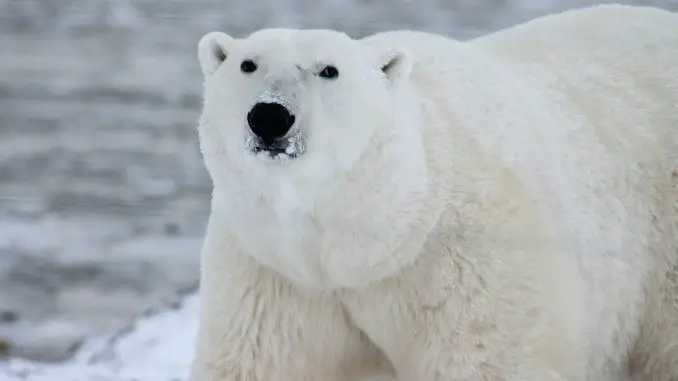
The Arctic has stored large quantities of coal in the ground for millennia. But the permafrost areas are moving towards a shift. Now, the areas of the Arctic are giving off more carbon to the atmosphere than vegetation takes up, a new international study shows.
The Arctic is one of the world’s collapsed collages, as the permafrost keeps the organic carbon in the ground. But the bound carbon is now at risk of being released into the atmosphere as the carbon balance changes as a result of rising temperatures, according to a new international study published in Nature Climate Change.
Carbon sink has become a carbon source
The carbon balance shows the difference between how much carbon is absorbed by vegetation and how much is released into the atmosphere. Most processes go slower when it is cold and researchers have assumed that carbon dioxide emissions in the permafrost areas during the cold season almost stop, something that the new study is problematic.
In the new study, winter measurements have been compiled from 104 locations around the Arctic and worrying results are presented. The measurements show that 1.7 million tonnes of carbon are released into the atmosphere in the surveyed areas from October to April, compared with 1 million tonnes of plants picked up in the same areas during the warm part of the year. This gives a net emission of 700,000 tonnes of carbon dioxide.
– The warming in the Arctic is happening faster than anywhere else in the world and the biggest increase in temperature is during the winter. For a long time, it has been assumed that the soil processes almost stop during the winter and measurements of, for example, greenhouse gas flows have therefore been focused on the Arctic growing season.
Researchers behind the study believe that the process of storage has stopped. The collaging we previously had has disappeared, which is a serious change since we previously considered it a stable carbon sink. The mechanism that previously stored coal and prevented the carbon from spreading to the atmosphere has been transformed into a carbon source that instead emits coal and amplifies global warming.
Rising temperatures are a deciding factor
Many different factors affect the degradation of organic material during the winter. When organic matter is composted, or when microorganisms breathe, carbon dioxide and methane are produced. Above all, it is the availability of frozen water, which is often found in thin layers or in micro-accumulations around soil particles, that enable emissions. With increased temperatures, the proportion of available water will increase, resulting in an increased rate of degradation and thus greater emissions.
– The change in vegetation that we expect with climate change has a small effect on the carbon sink compared to the temperature increase in general. Temperature is the defining factor.
Powerful action is required
The fact that there is a shift in the Arctic coal balance is worrying and shows the importance of powerful measures to stop the global temperature rise. If we do nothing about the emission levels, the temperatures in the atmosphere will continue to rise, and with them the degradation processes.
– Permafrost areas in the north will emit more carbon dioxide during the winter the warmer winters we get. If we can slow down the greenhouse effect, we can also avoid warmer winters and thus the positive feedback.
– I hope that the study will lead to more people becoming aware of the problem we are facing and that they generally manage to take the step from living in their own little bubble.
In recent decades, considerable research resources have been invested in establishing the carbon balance in the Arctic, which is part of the work that forms the basis of the UN Climate Panel’s reports.
Link to the study: Large loss of CO2 in winter observed across the northern permafrost region

Leave a Reply